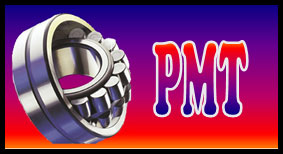
Ó 2007 Predictive Maintenance Technologies LLC
Newberg, OR
Elements of an Effective Predictive Maintenance Program
An effective Predictive Maintenance Program (PdM) is a process of five continually repeated steps:
1. Data Collection - Vibration data is collected from machines with
portable data collectors, online acquisitions or a combination of
both.
2. Data Processing - The data is loaded into a computer and
analyzed with the aid of Predictive Maintenance Software. The
software provides access to the vibration data and data history.
Alarm functions are provided that check the data and report any
readings that are over predetermined alarm levels. Generally
the PDM software turns the raw data into information about the
vibration characteristics of the machine.
3. Data Analysis - At this stage, the information must be interpreted.
The interpretation requires knowledge about vibration characteristics
and is preformed by trained specialists who are able to look at the
vibration data and understand the overall readings and spectra
graphs.
4. Repair Recommendation - Once the vibration patterns are
understood, knowledge of the affected equipment must be
considered. For instance, can an individual bearing be replaced,
or will the entire piece of equipment have to be removed for repair.
This step also compares the cost of a minor rebuild to that of a major
rebuild.
5. Implementation - The final task in the process is to consider the
repair advice and other relevant factors such as cost of repairs,
production requirements, budgets, ectů and make a decision. It
should be implicitly understood that when a decision is made it be
implemented. The appropriate decision may be inaction rather than
action. The "do nothing" alternative is often appropriate. In such
cases the work leading up the this decision has not been wasted, at
least you know why you are doing nothing and are aware of the key
factors that may change this strategy.







